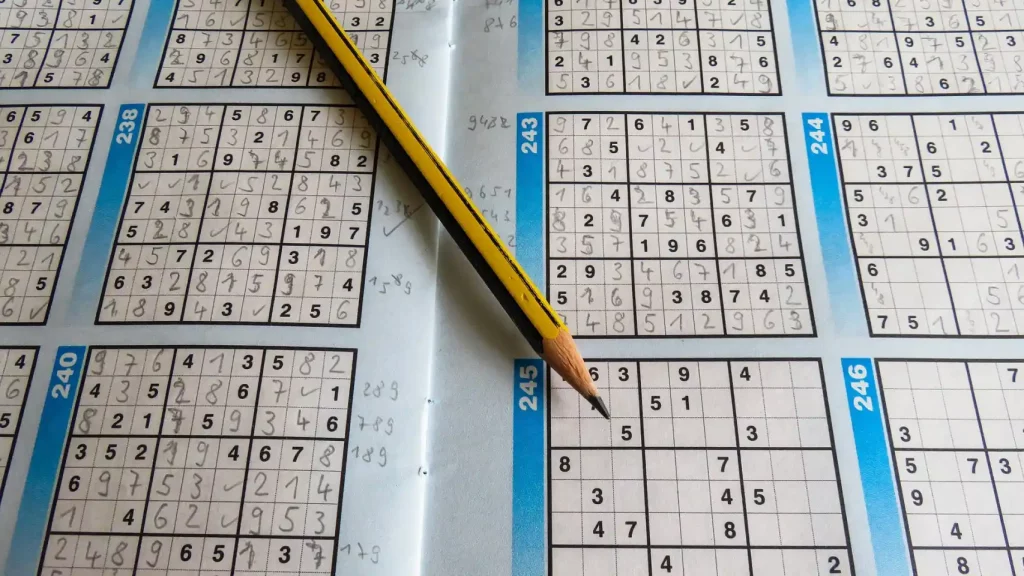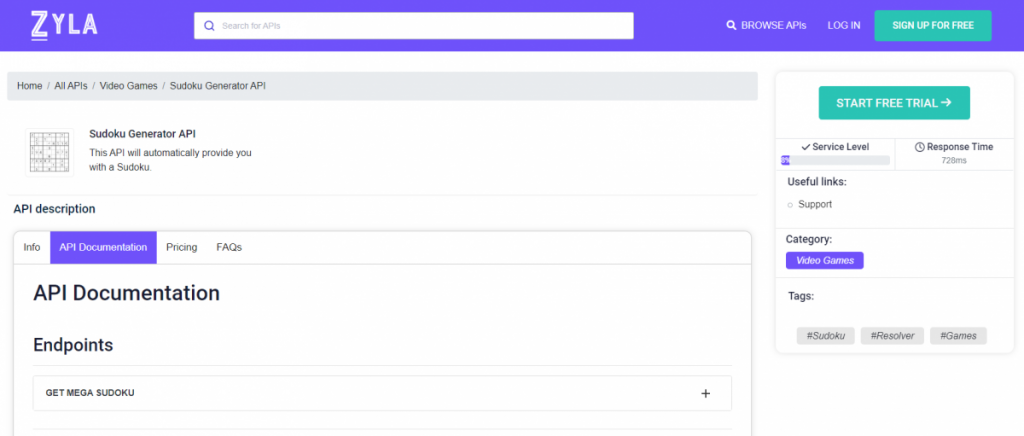Sudoku, the popular number puzzle game, has been captivating players for decades. It’s simple rules and challenging gameplay make it an ideal choice for mobile game developers looking to engage their users. To save time and effort in creating Sudoku puzzles, many developers turn to APIs. These tools provide a convenient solution for generating Sudoku puzzles of various sizes and difficulty levels. In this article, we will explore the possibilities of implementing an API into a mobile game and compare some of the best options available for commercial use.
The Power of a Sudoku Generator API
Sudoku Generator API enables developers to effortlessly generate Sudoku puzzles of varying complexities on demand. It eliminates the need for manual puzzle creation and provides an efficient way to deliver fresh and challenging puzzles to app users. By integrating such an API, mobile game developers can focus on enhancing the user interface, gameplay features, and overall user experience.
The 16×16 Sudoku Board:
One option offered by Sudoku Generator API is the ability to generate 16×16 Sudoku puzzles. This larger grid provides an additional layer of complexity, catering to players seeking a more challenging experience. The 16×16 Sudoku puzzles often incorporate letters along with numbers, further expanding the possibilities for engaging gameplay. Implementing this feature can attract puzzle enthusiasts who enjoy pushing their logical thinking skills to the limit.
The 9×9 Sudoku Board:
While the 16×16 Sudoku board offers an advanced challenge, the classic 9×9 Sudoku puzzles remain immensely popular. With three difficulty levels, a 9×9 Sudoku board can cater to a wide range of players, from beginners to seasoned puzzle solvers. This traditional format has a broad appeal, making it an ideal choice for app developers aiming to target a larger user base.

Integration into Mobile Games
Implementing Sudoku Generator API into a mobile game offers numerous benefits, enhancing user engagement and providing a unique gameplay experience. Here are some advantages of integrating this API into your app:
Dynamic Gameplay: By leveraging the API, developers can deliver fresh puzzles to players in real time, ensuring that the game never becomes repetitive or predictable. This dynamic gameplay keeps users engaged and encourages them to return to the app regularly.
Difficulty Customization: The API’s three difficulty levels enable developers to cater to a broad audience. Beginners can enjoy gentle introductions to Sudoku puzzles, while advanced players can tackle more complex challenges. The ability to customize the difficulty level ensures that the game remains enjoyable for all users.
Social Interaction: Integrating the Sudoku Puzzle Generator API into a mobile game presents opportunities for social interaction. Players can compare their scores, share completed puzzles, or challenge friends, fostering a sense of community and friendly competition within the app.
How Does This API Work?
Sudoku Generator API is very simple in its function. The API generates sudoku puzzles of varying difficulties (easy, medium, or hard), and of varying sizes, either a 16×16 board or a classic 9×9 board. The API will respond to the call with a Sudoku board in the specified format, containing the initial values and empty cells for the player to fill in. You can then present this puzzle to your users in your application or website, offering them an engaging and brain-teasing experience.
The raw output of the API looks like this:
{
"seed": "7.....52..63...79.......613.7.5.2361.3.864975695173842..7.......1....2..326948157",
"difficulty": "hard",
"candidates": [
[
"7",
"48",
"1489",
"346",
"138",
"169",
"5",
"2",
"48"
],
[
"12458",
"6",
"3",
"24",
"1258",
"15",
"7",
"9",
"48"
],
[
"24589",
"458",
"2489",
"247",
"258",
"579",
"6",
"1",
"3"
],
[
"48",
"7",
"48",
"5",
"9",
"2",
"3",
"6",
"1"
],
[
"12",
"3",
"12",
"8",
"6",
"4",
"9",
"7",
"5"
],
[
"6",
"9",
"5",
"1",
"7",
"3",
"8",
"4",
"2"
],
[
"589",
"58",
"7",
"236",
"1235",
"156",
"4",
"38",
"689"
],
[
"4589",
"1",
"489",
"367",
"35",
"567",
"2",
"38",
"689"
],
[
"3",
"2",
"6",
"9",
"4",
"8",
"1",
"5",
"7"
]
],
"grid": [
[
"7",
".",
".",
".",
".",
".",
"5",
"2",
"."
],
[
".",
"6",
"3",
".",
".",
".",
"7",
"9",
"."
],
[
".",
".",
".",
".",
".",
".",
"6",
"1",
"3"
],
[
".",
"7",
".",
"5",
".",
"2",
"3",
"6",
"1"
],
[
".",
"3",
".",
"8",
"6",
"4",
"9",
"7",
"5"
],
[
"6",
"9",
"5",
"1",
"7",
"3",
"8",
"4",
"2"
],
[
".",
".",
"7",
".",
".",
".",
".",
".",
"."
],
[
".",
"1",
".",
".",
".",
".",
"2",
".",
"."
],
[
"3",
"2",
"6",
"9",
"4",
"8",
"1",
"5",
"7"
]
]
}How Can I Get This API?
Integrating Sudoku Generator API into a mobile game can enhance the appeal and engagement of your app for puzzle lovers. By incorporating a variety of puzzle boards and difficulty levels, developers can cater to a broad audience and keep users entertained for hours. Whether you’re designing a casual game or a more focused Sudoku experience, integrating this API can elevate your mobile app to new heights. Embrace the power of Sudoku puzzles and let your users embark on an exciting journey of logic and skill. You can try out this API by following these instructions:

1- Go to www.zylalabs.com and search for “Sudoku Generator API“, then click on the “Start Free Trial” button to start using the API.
2- Register and choose the plan that suits you best, you can cancel it whenever you want, even at the end of the free trial.
3- Once you find the endpoint you need, make the API call by clicking the “run” button and you will see the results on your screen. You can also choose the programming language of your choice and the response will be given in the friendly JSON format.

